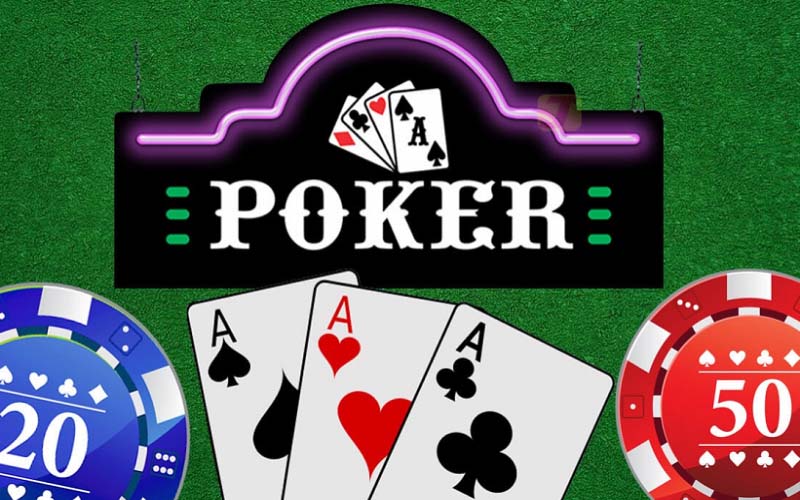The poker game is an exhilarating dance of chance and intellect, where every hand reveals a new opportunity for triumph. It captivates players with its thrilling blend of competition and strategic deception, creating an electrifying atmosphere at every table. This guide will take you on a journey through the intriguing history of poker, unravel essential rules, and unveil advanced techniques that can elevate your play. Whether you’re a curious beginner eager to learn or a veteran seeking to sharpen your edge, prepare to immerse yourself in the world of poker with insights that can lead you to victory.
Effective Poker Strategies
Winning at poker isn’t solely about luck; solid strategies can i9bet greatly enhance your chances. Developing a competitive edge involves understanding your opponents, managing your bankroll, and maximizing your position at the table.
Reading Your Opponent’s Mind
One of the most powerful skills a poker player can possess is the ability to read opponents. Observing betting patterns, body language, and facial expressions can provide valuable insights into their mental state and hand strength.
Start by paying attention to how players react during different phases of the game. Do they tend to raise aggressively when they have a strong hand? Or do they play passively, only engaging in larger bets when they feel confident? These behavioral cues can inform your decisions and help you anticipate their moves.
Additionally, consider the concept of “tells.” These subtle signals can indicate whether your opponent is bluffing or confident in their hand. For instance, a sudden change in a player’s demeanor, such as increased fidgeting or sudden silence, might suggest uncertainty. Cultivating the ability to identify these tells can significantly boost your strategic advantage in any poker game.
Bankroll Management in Poker
Effective bankroll management is crucial for sustaining a successful poker career. Without proper control over your funds, even the best players may find themselves facing financial difficulties.
Establish clear limits for your bankroll and avoid exceeding them, regardless of the game’s outcome. Consider designating a certain percentage of your total bankroll for each session, ensuring you never risk too much on a single game. This disciplined approach helps protect against inevitable downswings and allows room for recovery.
Furthermore, keep track of your wins and losses to assess your performance accurately. Understanding your trends can help you refine your strategies and make informed decisions about the stakes you should play.
Importance of Position at the Table
Positional awareness plays a pivotal role in poker strategy. Your position at the table, relative to the dealer button, determines the order of action and influences decision-making throughout the game.
Being in a late position allows you to observe your opponents’ actions before making your own move. You gain insight into their betting patterns and can adjust your strategy accordingly. Conversely, early positions require a more cautious approach, as you lack information regarding the intentions of later players.
Utilizing positional advantages effectively can lead to better decision-making and improved outcomes in your poker game.
Advanced Tips for Poker Players
Once you grasp the basics and foundational strategies, it’s time to delve into advanced tips that can set you apart from the competition. Knowledge about folding, developing personalized strategies, and learning from experienced players can elevate your gameplay.
Creating Your Own Playing Strategy
While there are countless strategies and tactics available, crafting a personalized playing style can set you apart. Reflect on your strengths and weaknesses as a player and design a strategy that aligns with your personality.
For example, if you’re naturally aggressive, consider adopting a loose-aggressive playing style that utilizes pressure on opponents. On the other hand, if you excel at reading people, incorporate elements of deception and bluffing into your approach.
Your strategy should evolve with experience, allowing you to adapt to different opponents and table dynamics. Continually assess and refine your plan based on what works best for you in real-world scenarios.
Learning from Skilled Players
To truly master the poker game, one must learn from those who have come before. Observing skilled players can provide invaluable insights into their thought processes, strategies, and decision-making techniques.
Consider watching live games or analyzing recorded sessions of professional players. Pay attention to their betting patterns, reactions, and adjustments to opponents’ strategies. Additionally, seek guidance from mentors or join poker communities where knowledge sharing occurs freely.
By absorbing experiences and wisdom from accomplished players, you can accelerate your own learning curve and elevate your game to new heights.
Conclusion
Embarking on the journey of mastering poker game is a thrilling adventure brimming with challenges and personal growth. The game is not just about the cards you’re dealt; it’s a blend of strategy, psychology, and history that keeps players captivated. Each variant of poker offers unique dynamics, allowing you to explore different styles and strategies.
